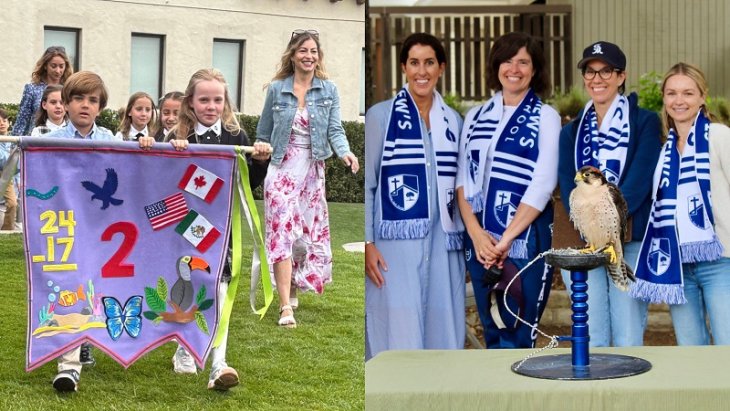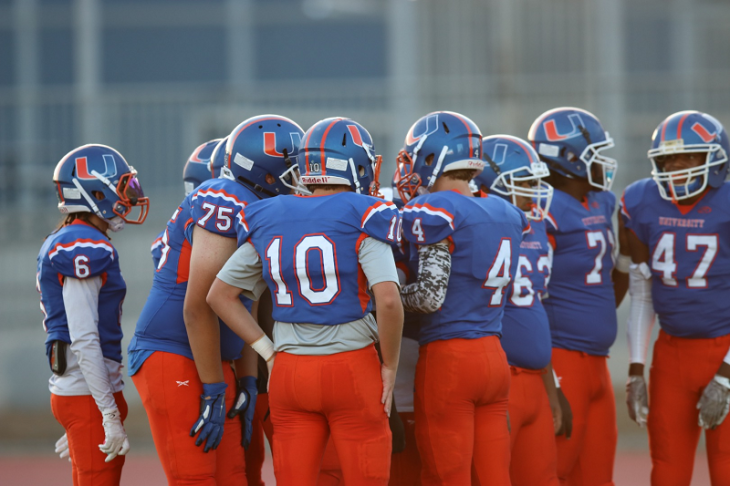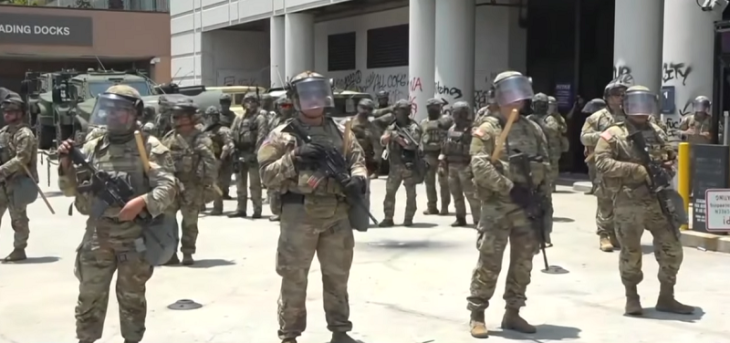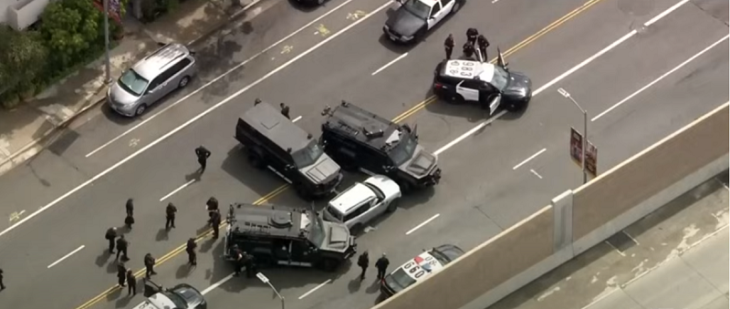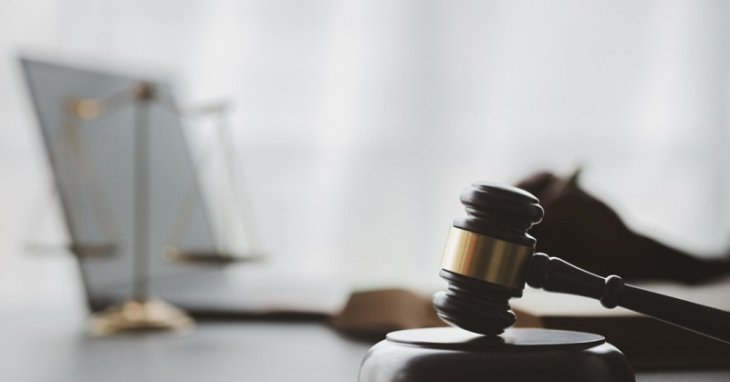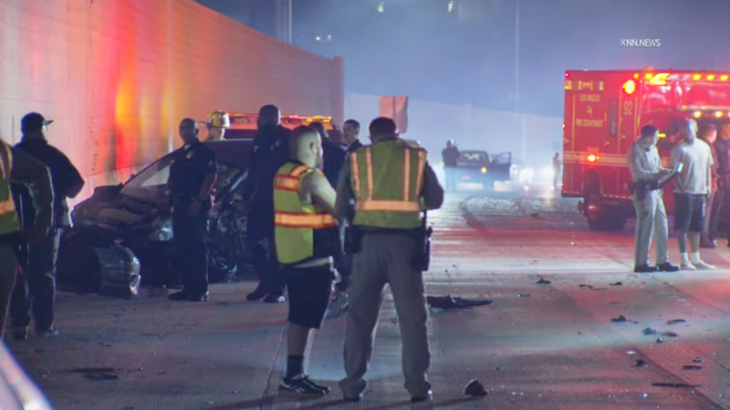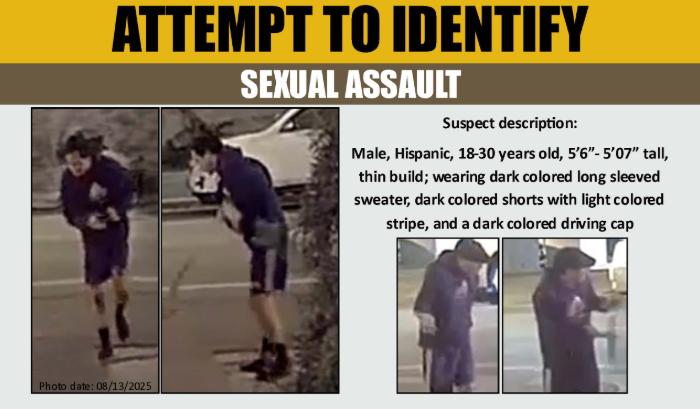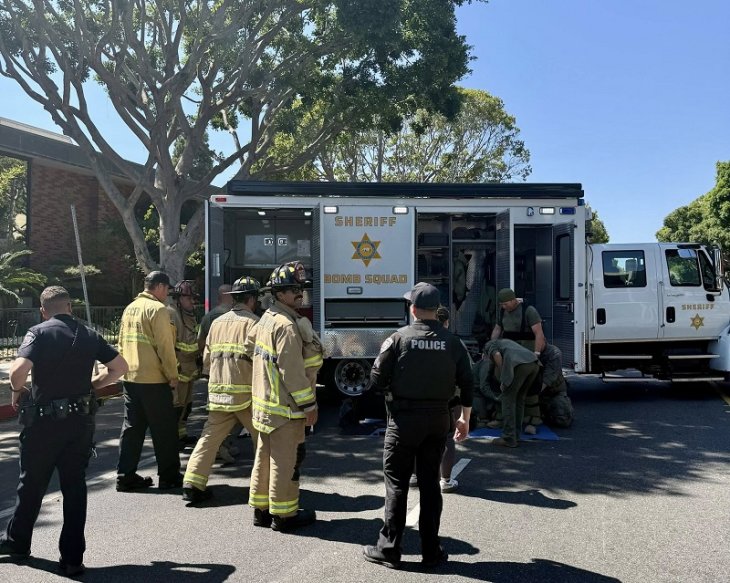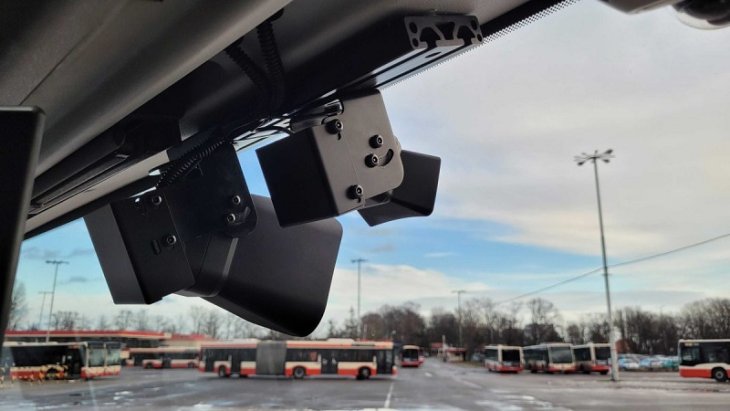A veteran Los Angeles police detective was denied career advancements for refusing to sign a statement — prepared by a federal prosecutor — that allegedly contained false information, his attorney told a jury Monday, but a lawyer for the city denied the plaintiff was the subject of any backlash.
The opposing views came during opening statements in trial of Detective Jamie McBride’s lawsuit in Los Angeles Superior Court.
McBride joined the LAPD in 1990. In February 2011, personnel from the LAPD and several other agencies arrested 57 people in a roundup targeting a street gang, according to court papers filed by McBride’s lawyer, Gregory W. Smith. One of those arrested was Ruben Marquez, who worked as a confidential informant for McBride from 2007-10, according to Smith.
McBride later spoke with Assistant U.S. Attorney Ariel Neuman and told him what he knew about Marquez and what the informant had done for the plaintiff, Smith told jurors. In November 2011, Neuman sent McBride a declaration to review and sign in connection with the prosecution of the defendants charged after the round-up, according Smith.
McBride found five errors in the declaration, according to Smith.
“I’m not going to sign that declaration,” McBride told himself, according to his attorney.
Neuman ended up agreeing to allow Marquez to enter a plea to a lesser charge, Smith said. The LAPD, unhappy with McBride’s unwillingness to sign the declaration, removed him from field duty in 2012 and the next year sent him to a Board of Rights hearing, according to his lawsuit.
Although McBride prevailed on five of the seven charges filed against him at the BOR hearing in 2014, Jorge Villegas, an LAPD bureau chief, prohibited the plaintiff from working as a night watch detective supervisor and from having any supervisory roles, according to Smith.
Former LAPD Officer Rodney Rodriguez stated in a sworn declaration that he overheard Villegas say to someone on a cell phone call that McBride had embarrassed the department by refusing to sign the declaration given him by the federal prosecutor and that the entire case could have been jeopardized.
“We’re going to have to deal with him,” Villegas said, according to Rodriguez’s declaration.
But Deputy City Attorney Dennis Kong said McBride was treated the same way any other LAPD officer would be under the same circumstances and that there was no retaliation by the department.
He said Villegas stopped an attempt to downgrade the plaintiff to a lower grade of detective because of a lack of evidence at the time.
“At the end of the day, what this case is about is public safety,” Kong said, noting that Marquez was close to known Mexican Mafia associate George Bustamante.
Kong said that since the Rampart scandal of the 1990s, the LAPD has been more sensitive about public trust and the lax relationships some officers have with their informants.
McBride “was good at his job,” Kong said. “He put some guns and some drugs off the street.” But McBride also had shortcomings in handling informants and in the way he trained his subordinates to do so, Kong said.
McBride, the trial’s first witness, said Marquez gave him information that helped in the arrest of more than 30 people, mostly gang members. However, he said he would not have hesitated to arrest Marquez if circumstances warranted it.
McBride said the only training he had from the LAPD in handling confidential informants was a 20-minute department video on the subject.
Unable to advance in his career because of the continuing restrictions, McBride ran for and was elected director of the Los Angeles Police Protective League in January 2015, according to his lawsuit.
He made headlines in January 2016 when he criticized Chief Charlie Beck for recommending that Officer Clifford Proctor be criminally charged in the fatal on-duty shooting of Brendon Glenn, an unarmed homeless man, in Venice in 2015.
LAPD investigators concluded Glenn was trying to get up off the ground when Proctor fired twice and hit the man in the back.






